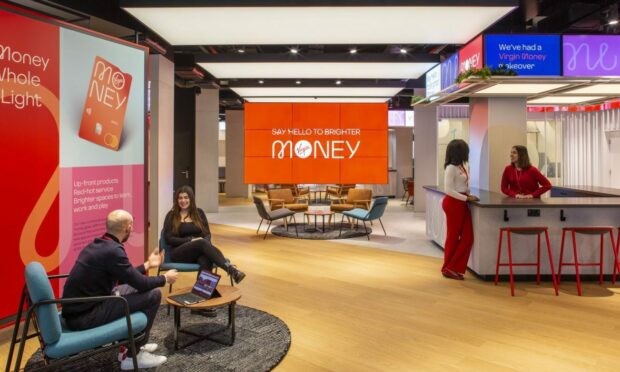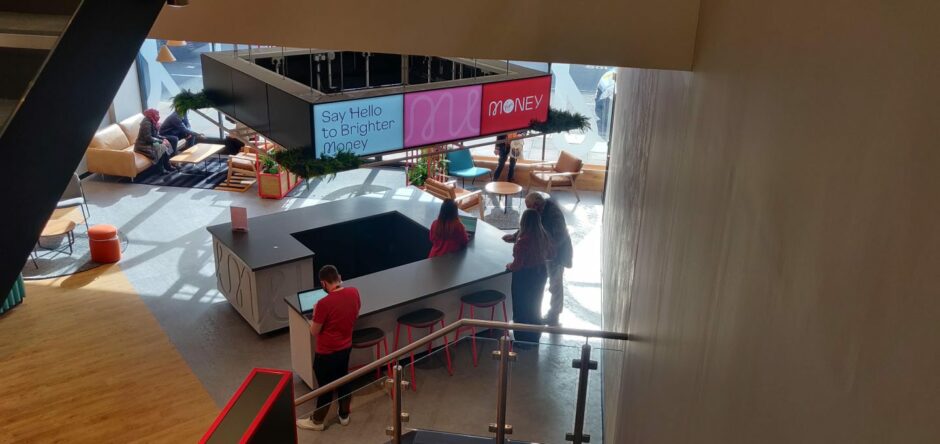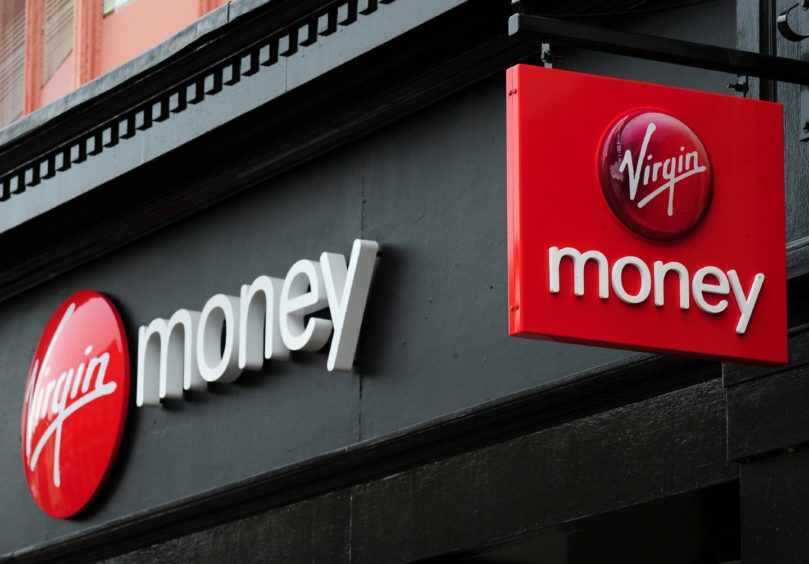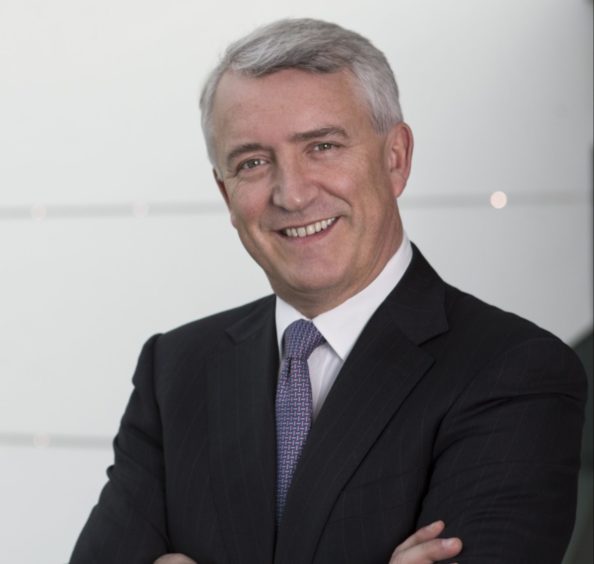Virgin Money will have branches “as long as people need them”, the banking group’s finance chief said today.
Trends are still moving in the direction of people doing more of their day-to-day banking online, Clifford Abrahams added.
Virgin, which includes the former Clydesdale Bank business in Scotland, has whittled down its UK-wide retail network to around 130 branches.
Last year the axe fell on 12 of its Scottish sites, at locations including Banchory, Wick and Portree.
Bank is ‘sensitive’ to branch access
But Mr Abrahams insisted Virgin was “sensitive” to Scotland’s demography, with some parts of the country rather more reliant on access to local bank branches than others.
He added: “We will have branches for as long as people need them and use them.”
Virgin’s chief financial officer was speaking after the Glasgow-based banking group announced a large jump in profits.
Shares in the company got off to a good start in London but ended the day more than 10% lower at 159.7p
Moments before the Bank of England raised the base interest rate to a 13-year high of 1%, potentially fuelling the cost-of-living crisis and sparking concerns about a major economic downturn, Mr Abrahams said this and further increases could lead to a “more cautious” outlook.
Virgin has not seen too much evidence of the crisis to date, he said, adding it was still “early days” and “the people we lend money to tend to be a bit more affluent than the general population”.
Those who have borrowed cash from Virgin are “relatively well-behaved” in servicing their debt, he said.
But the bank is constantly monitoring trends and factoring in the higher cost of living, he added.
Analysts at Shore Capital Markets said Virgin had “smashed consensus expectations” with underlying pre-tax profits of £388 million for the six months to March 31.
This was an increase of more than 58% on the £245m racked up during the first half of 2020-21.
Statutory profits surged to £315m in the latest period, from £72m a year ago, which Virgin said primarily reflected stronger income.
Total operating income raced ahead to £844m, up more than 21% year-on-year, driven by factors including higher rates, lower a higher yielding lending mix, credit card spending and business activity levels.
Underlying costs of £456m were 1% lower year-on-year, as expected savings from digital transformation and restructuring were offset by inflation, including agreed pay rises, along with targeted growth and planned higher digital development costs.
Lending down slightly overall
Group lending fell by 0.2% to £71.9 billion as growth in unsecured loans was more than offset by a reduction in mortgages and business lending.
Unsecured loan balances increased by 7% to £5.8bn, which Virgin said was led by above-market growth in credit card lending.
Mortgage balances fell by 0.5% to £57.8bn as the group “continued to prioritise margin in an increasingly competitive environment”.
Business lending reduced 2.5% to £8.3bn, driven by reductions in government-guaranteed lending schemes as borrowers continued to repay balances following the expiry of the one-year interest-free period.
Total customer deposits slid by 3.7% to £64.4bn, which Virgin said reflected “careful management” within a “robust” balance sheet.
Chief executive David Duffy said: “We have positive momentum in attracting new customers to Virgin Money through record credit card sales, good growth in personal current account openings and a strong uptake of our new digital fee-free business current account.
“While the macroeconomic outlook is uncertain and there are increased cost pressures on consumers, we remain prudently provisioned and are confident in the quality of our loan portfolio.”
Mr Duffy added: “Overall, we continue to have the right strategy and are executing on the key components that will underpin our delivery of improved returns and profitable growth over the coming years.”





Conversation